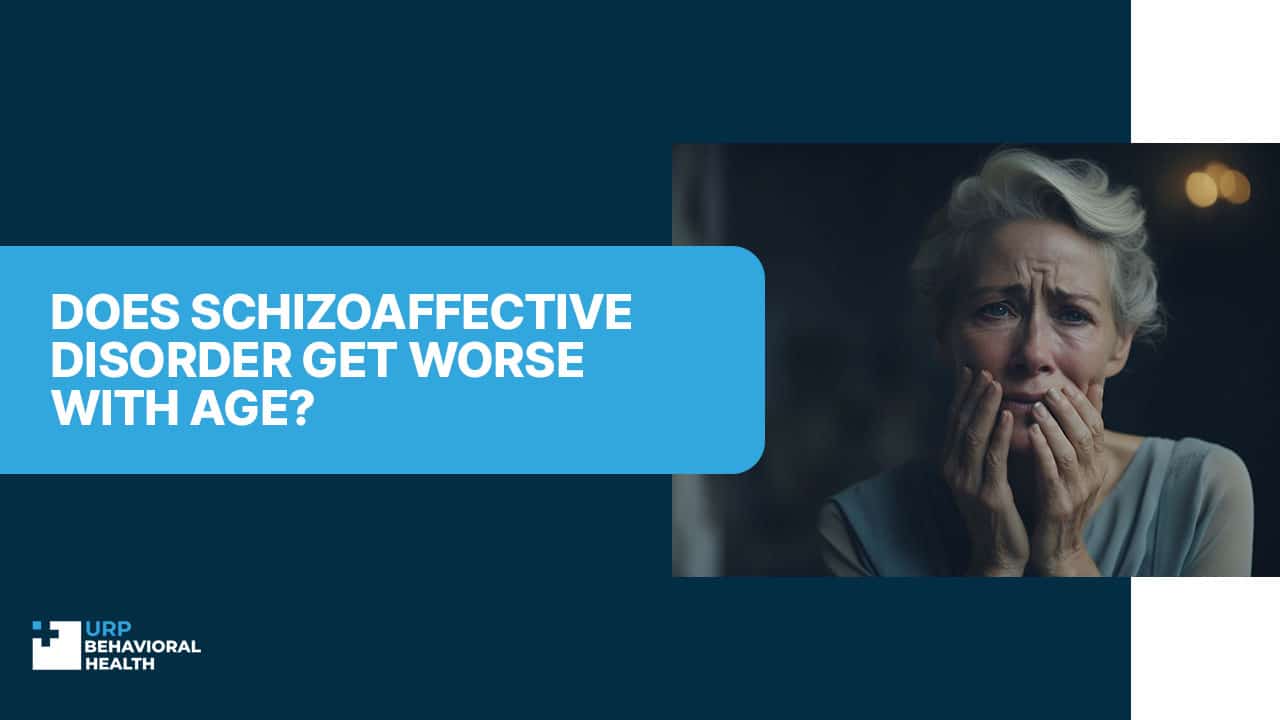
Does Schizoaffective Disorder Get Worse With Age?
Why and if schizoaffective disorder gets worse with age?
To understand the reason for the problem we should first go deeper into the roots of it and explore it. To do so, let’s explain what schizoaffective disorder is and what the common symptoms are. Schizoaffective disorder is a complex mental disease that can affect different people depending on a variety of factors. It is happening because of some changes happening inside of the brain for many reasons. How is schizoaffective disorder characterized? Common signs of the illness are hearing, sensitive and visible hallucinations, delusions, mania, and depression.
Why is it so important to explore the disease and self-educate yourself about it? By understanding how schizoaffective disorder works and affects people’s brains it’s easier to notice the very first signs of it, seek professional help, and get the proper treatment, decreasing the risk of the development of worse symptoms [1][2]. By getting more and more information about different disorders usual for older people, those in a risk category can protect themselves from dire consequences.
Our team will verify your insurance and design a plan tailored to your needs.
Does Schizoaffective Get Worse With Age?
Is it a myth or reality that schizoaffective disorder can get worse with age? Well, let’s explore this topic in detail. First of all, probably, yes. As we all know, as people age, they get more and more different illnesses, as the brain and the body ages and loses their ability to restore quickly. However, there is still no evidence of schizoaffective getting worse for elderly people. Everything depends on a person, their lifestyle, treatment, level of stress, etc. For example, if a person has a bad lifestyle including smoking cigarettes, drinking alcohol, bad diet, and sleep, it can for sure affect their brain and lead to a worsening of all the possible illnesses.
No less important is proper and professional treatment. Schizoaffective disorder can even stabilize and get better with age with consistent treatment.
It’s crucial to educate yourself and learn more information about schizoaffective disorder if you or your relatives have one. When a person ages, their bodies lose the ability to metabolize medication in a proper way, which can, for sure, have a strong impact on the effectiveness of treatments. With no treatment at all this disease is very dangerous and can lead to worse symptoms and makes it more difficult to manage the disorder and your well-being.
Additionally, cognitive decline, which is a natural part of aging, can exacerbate the symptoms of schizoaffective disorder if not managed properly [1]. When you age, the frequency of relapses in schizoaffective disorder also increases, especially without proper treatment. Moreover, such factors as stress or retirement can also impact people’s well-being and mental health. That’s why it’s vital to seek professional help as fast as you recognize the very first signs of schizoaffective disorder.
How Does Aging Affect Schizoaffective?
Now, when we explored the previous topic, we can finally go deeper into the roots of the problem: why does aging affect schizoaffective disorder?
As we discussed before, many diseases affect elderly people, and aging generally has a strong impact on our brains and bodies. But why exactly is this happening? Well, there are several reasons for it. Firstly, cognitive function can decline with age, which can definitely worsen symptoms such as memory loss or difficulty concentrating. Secondly, when people age, they get more chronic illnesses such as heart disease or diabetes which, for sure, requires getting some extra medications, which can also impact some of your body parts including the brain, and lead to the development of a variety of mental disorders [2]. Fourthly, there’s also a strong impact of social isolation and loneliness, which can happen due to retirement, loss of loved ones, or decreased mobility. Finally, the fifth reason is restricted access to mental health services which is possible because of mobility issues, financial problems, or even geography.
Contact our admissions team now to begin your path toward a brighter future.
Tips for Managing Schizoaffective Disorder as You Age
Finally, after understanding the roots of the problem we can get some tips in order to prevent the development of worse symptoms of schizoaffective disorder as you age:
- Don’t hesitate to seek professional help and always follow the doctors’ advice including medication and even alternative therapy.
- Take seriously cognitive exercises such as puzzles, reading and remembering, and learning new skills and languages, and make them a part of your daily routine.
- Don’t forget to maintain a healthy lifestyle which includes exercising, a proper diet, and good sleep.
- Create a supportive atmosphere including your family members, friends, and other people with schizoaffective disorder or similar illnesses.
- Don’t isolate yourself, take part in social and cultural activities as long as you can.
- Self-educate yourself about your disease, do regular health screenings, and discuss every new sign or symptom with your therapist.
Conclusion
Summing up, there are a few important things to repeat:
- There is still no evidence confirming that schizoaffective disorder gets worse for elderly people. Everything depends on a person, their genetics, lifestyle, and proper treatment.
- If the disorder gets worse, it’s also normal as we all get more chronic illnesses when we age.
- It’s crucial to self-educate yourself and seek professional help as far as possible to prevent the development of worse symptoms and other diseases.
- Don’t forget to maintain a healthy lifestyle and create a supportive environment as it’s the same important as professional treatment for your well-being.
If you or someone you know suspects signs of schizoaffective disorder and its changes while aging, it’s crucial to seek professional help from such experts as URP Behavioral Health specialists. Early intervention and a proper treatment plan can make a significant difference in managing the challenges that aging may bring to those living with schizoaffective disorder.
Don’t wait - confidential help is available right now for you or your loved one.
Sources
- [1] “Schizoaffective Disorder and Aging”. https://pmc.ncbi.nlm.nih.gov/articles/PMC6013831/
- [2] “Cognitive Decline in Schizoaffective Disorder”. https://pmc.ncbi.nlm.nih.gov/articles/PMC3181756/
















